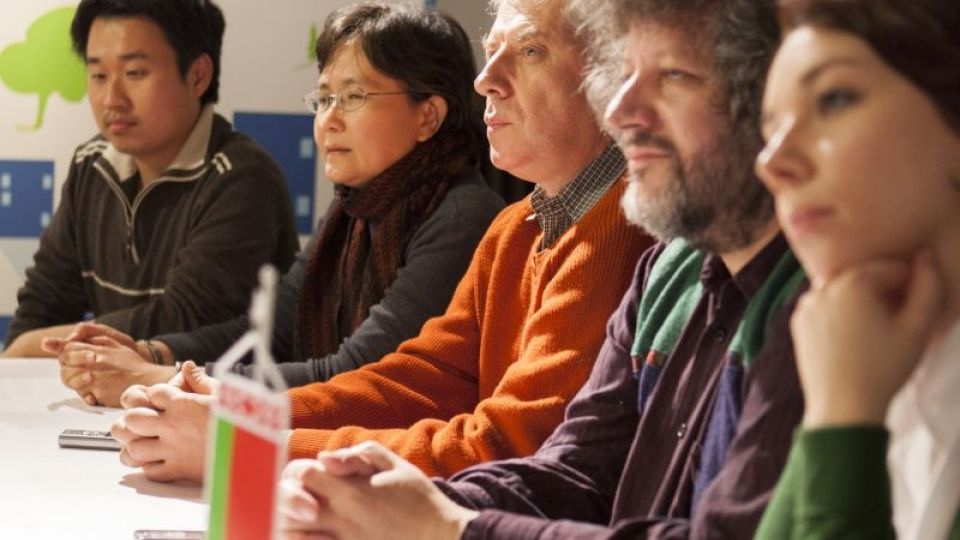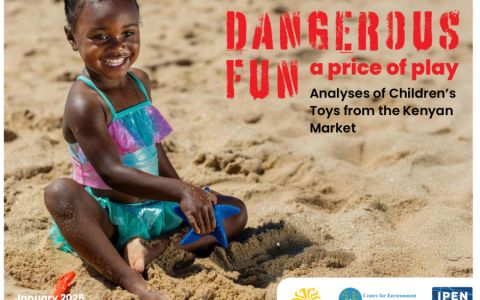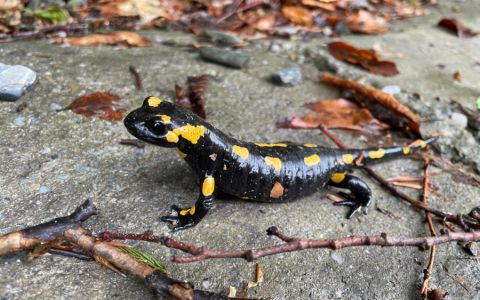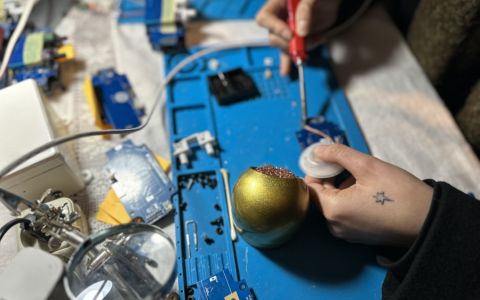What was the beginning of the autumn affairs in 1989 that finally lead to a fundamental change of political situation in the former Czechoslovakia? Demonstrations in the then extremely polluted northern Bohemia where people called for cleaner air. Citizens of certain states east of our borders are in similar situation now. People in Belarus, China, Kazakhstan, and Thailand fight for healthier environment. An international conference in Prague was attended by representatives of organisations that are helped by the Arnika Association to work within their homelands. Arnika has been assisting to identify toxic substances that are polluting their environment or to participate in the processes that could result in improvement of their environment.
"Toxic substances are present almost everywhere around us to some extent, but certain groups of people are at higher risk. For example, children are at a high risk as their bodies are still developing. Because of that, we decided to analyze toys for contents of heavy metals and phthalates in Belarus. Unfortunately, Belarus does not have a legislation that would require the sellers to state a list of potentially hazardous substances on the packaging. Thus, with my colleagues, I started to inform the public about the risks because mothers do not have sufficient information on the possible presence of toxic substances in consumer goods," says Darja Čumakova from the Belorussian Center for Environmental Solutions.
When Xie Yong's son was born in May 2008, he and his wife were very happy. But, they soon noticed that the boy did not open one of his eyes. According to physicians, this was a manifestation of cerebral palsy potentially caused by the environment in which they lived. Xie Yong remembered an incinerator chimney which was only two hundred metres from their home. Because he could not succeed in solving the situation at the level of the local self-government, he had to bring a legal action against the incineration plant with assistance of non-governmental organisations cooperating with the Arnika Association. Through several appeals, the case got as far as to the Supreme Court of the Jiangsu province. "I have never met another person who would be so persistent in the fight to achieve his goal, the right for healthier living environment. Unfortunately, it will not restore his son's health. But he opened room for action of other similarly affected people in order to call for their rights," describes Liwen Chen from China, who helped Xie Yong with the case.
"High amounts of mercury had been released by a chemical plant, very similar to the Czech plant, Spolana Neratovice, into one of the most important rivers in Kazakhstan, the Nura. The government, in cooperation with the World Bank, let the river to be cleaned, because it provided water for the capital city, Astana. However, we suspected that a part of money from the World Bank loan was embezzled. The company that should carry out the decontamination had a complex group of subcontractors. They should be supervised by an Austrian company Posh & partners. This company did not fulfil its task. What resulted was extremely insufficient quality of the work; tons of mercury in soil were left on the banks of the river. The low-quality of the work harmed many people. Thanks to cooperation with a local farmer, we succeeded in proving that the decontamination was not carried out properly. However, we were able to force the authorities to carry out further decontamination of the land of this farmer only. Contaminated soil is still present along Nura and presents a risk for local people. With the assistance of the Arnika Association, we have been solving the problem and informing local inhabitants on possible impacts on their health," says the chairman of the Kazakhstan organisation EcoMuzeum, Dmitrij Kalmykov.
"Thai people routinely used water from a local river for watering their vegetable gardens as well as rice fields. Nobody was informed about possible pollution, originating from a fly ash disposal site of a coal-fired power plant. However, this changed when this area of Thailand was included into the project of mercury content monitoring in fish and human hair. Thanks to the joint project of the Arnika Association, international network IPEN, and local organisation EARTH, people learned that they had been contaminated by mercury in their food. When they asked their physicians whether they knew how this could happen and how they should protect themselves, nobody way able to answer. The state did not have any database similar to the Czech Integrated Pollution Register. This case showed clearly that such registers are necessary in order to help in human health protection," says Penchom Seatang from the Thai organisation EARTH.
"All the people who came to Prague to attend the conference have been closely watched in their countries. However, similarly as organisers of demonstrations in northern Bohemia in 1989, they are not afraid to fight for the interest of healthy environment. Thus, they help to protect not only nature, but, in particularly, health of all inhabitants of their respective areas. Thanks to the experience the Arnika Association got in the recent Czech past, we may offer help to these people, and, thus, to contribute to improvement of the state of the environment they live in," adds Arnika's chairman, RNDr. Jindřich Petrlík.







